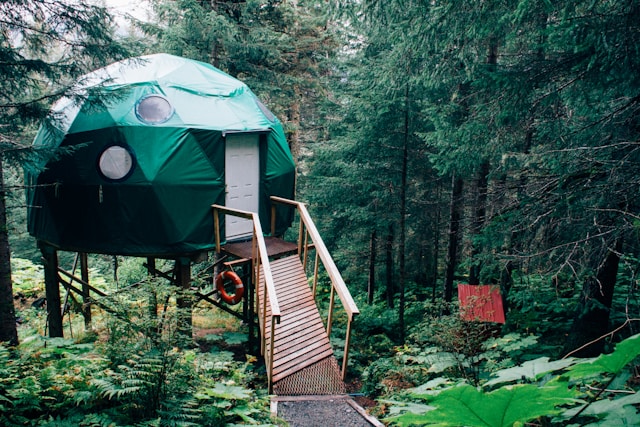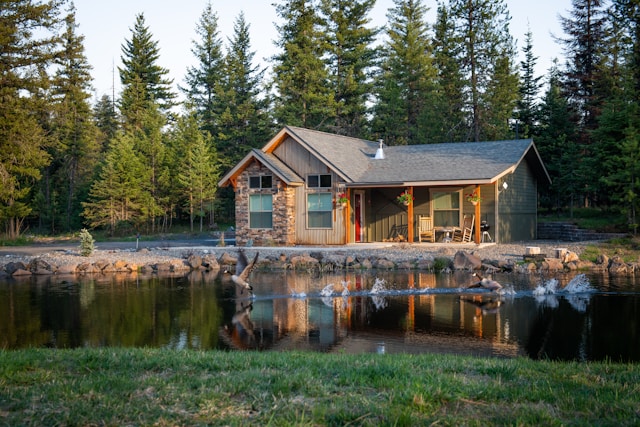Airbnb’s rise from a startup to a global hospitality giant is a testament to its innovative marketing strategy. For marketing professionals, Airbnb offers valuable lessons in branding, customer engagement, and leveraging digital platforms. Let’s talk about the key components of Airbnb’s marketing strategy, highlighting successful campaigns that have propelled the brand to the forefront of the industry.
The Foundation: Building a Strong Brand
Airbnb’s marketing strategy hinges on a strong, relatable brand identity. From the outset, Airbnb positioned itself as more than just a platform for booking accommodations. It marketed itself as a community-driven platform where travelers could connect with locals and experience destinations in a unique, authentic way.
The “Belong Anywhere” Campaign
In 2014, Airbnb launched the “Belong Anywhere” campaign, which became a cornerstone of its brand identity. The campaign emphasized the idea that Airbnb is about more than just a place to stay—it’s about making connections and feeling at home anywhere in the world. This emotional appeal resonated with travelers seeking unique, personalized experiences over traditional hotel stays.

The campaign included a logo redesign featuring the “Bélo,” a symbol representing people, places, love, and Airbnb. This simple yet powerful symbol reinforced the brand’s message of belonging and community.
Storytelling: Creating Emotional Connections
Airbnb excels in storytelling, using real stories from hosts and guests to create an emotional connection with its audience. By showcasing authentic experiences, Airbnb builds trust and relatability.
Host Stories
One effective aspect of Airbnb’s storytelling is its focus on hosts. By highlighting the stories of hosts and their homes, Airbnb humanizes its platform and showcases the diversity of its offerings. These stories are shared through blog posts, social media, and video content, providing a behind-the-scenes look at what makes each listing unique.

For example, the “Made Possible by Hosts” campaign celebrated hosts who go above and beyond to create memorable stays for their guests. This campaign included a series of short films featuring real hosts and their stories, highlighting the personal touch that differentiates Airbnb from traditional lodging options.
Leveraging User-Generated Content
User-generated content (UGC) plays a crucial role in Airbnb’s marketing strategy. By encouraging guests to share their experiences on social media, Airbnb amplifies its reach and creates a sense of community among its users.
#AirbnbHashtags
Airbnb actively promotes hashtags like #Airbnb and #AirbnbExperience, encouraging users to tag their photos and stories. This not only provides Airbnb with a wealth of authentic content but also acts as social proof, showcasing real experiences to potential customers.
One notable example is the “Night At” series, where Airbnb offers unique, once-in-a-lifetime stays, such as a night in the Louvre or a floating house on the Thames. These events generate significant social media buzz, with participants sharing their experiences online and attracting widespread media coverage.
Innovative Digital Marketing
Airbnb’s digital marketing strategy is both comprehensive and innovative, leveraging various online channels to reach its audience.
SEO and Content Marketing
Airbnb invests heavily in SEO and content marketing to drive organic traffic. The company’s blog, “Airbnb Magazine,” features travel guides, host stories, and destination highlights. By providing valuable content, Airbnb not only engages its audience but also improves its search engine rankings.

The platform also uses localized SEO strategies to attract users searching for specific destinations. By optimizing content for local keywords and creating city-specific landing pages, Airbnb ensures it appears in relevant search results.
Social Media Engagement
Airbnb’s social media presence is robust, with active profiles on platforms like Instagram, Facebook, Twitter, and YouTube. Each platform is used strategically to engage with different segments of the audience.
On Instagram, Airbnb showcases stunning visuals of properties and destinations, often featuring user-generated content. Facebook is used for customer service and community building, while Twitter allows for real-time engagement and updates. YouTube hosts a variety of video content, including ads, host stories, and travel inspiration.
Influencer Partnerships
Collaborating with influencers is another key component of Airbnb’s digital marketing strategy. By partnering with travel influencers and bloggers, Airbnb reaches new audiences and gains credibility through third-party endorsements.
For example, the “Airbnb Adventures” campaign involved influencers embarking on unique travel experiences booked through Airbnb. These influencers shared their journeys with their followers, generating buzz and driving traffic to the platform.
Data-Driven Decision Making
Airbnb leverages data analytics to inform its marketing decisions. By analyzing user behavior, booking patterns, and feedback, Airbnb continuously refines its strategy to better meet the needs of its audience.
Personalization and Targeting
Using data, Airbnb personalizes its marketing efforts to cater to individual preferences. Personalized email campaigns, for instance, recommend destinations and experiences based on past bookings and user interests.
Airbnb also uses retargeting ads to re-engage users who have shown interest in specific listings or destinations. These ads are tailored to the user’s browsing history, increasing the likelihood of conversion.
Experiential Marketing
Experiential marketing is at the heart of Airbnb’s strategy, offering customers unique, memorable experiences that go beyond traditional travel.
Airbnb Experiences
Launched in 2016, Airbnb Experiences allows users to book activities hosted by locals, such as cooking classes, guided tours, and workshops. This initiative not only diversifies Airbnb’s offerings but also enhances its brand by emphasizing local culture and personal connections.
Airbnb Experiences are promoted through dedicated campaigns, social media, and partnerships with influencers. By highlighting these unique activities, Airbnb differentiates itself from other travel platforms and encourages longer stays and higher spending per trip.
High-Profile Partnerships and Events
Airbnb frequently collaborates with high-profile brands and events to create buzz and attract new users. For example, Airbnb partnered with the Sydney Opera House to offer an exclusive overnight stay as part of the “Night At” series. This collaboration generated significant media coverage and showcased Airbnb’s ability to offer unique, once-in-a-lifetime experiences.
Another notable partnership was with the 2020 Tokyo Olympics. Airbnb became the official “Olympic Experiences” provider, offering exclusive activities hosted by Olympians and local hosts. This partnership not only boosted Airbnb’s visibility but also reinforced its commitment to offering authentic, memorable experiences.
Crisis Management and Adaptability
Airbnb’s marketing strategy also includes effective crisis management and adaptability. The COVID-19 pandemic posed significant challenges for the travel industry, but Airbnb responded with agility and creativity.
Flexible Booking Policies and Safety Measures
To address concerns about travel safety and flexibility, Airbnb introduced enhanced cleaning protocols and flexible booking policies. The “Enhanced Cleaning Initiative” provided guidelines for hosts to ensure their properties met stringent hygiene standards. This initiative was promoted through email campaigns, social media, and the Airbnb website, reassuring customers and encouraging bookings.
Airbnb also implemented flexible cancellation policies, allowing guests to book with confidence. This adaptability helped maintain customer trust and loyalty during uncertain times.
Promoting Local Travel
With international travel restrictions in place, Airbnb shifted its focus to promoting local travel. Campaigns like “Go Near” encouraged users to explore destinations close to home, highlighting nearby getaways and unique stays. This pivot not only kept the platform relevant but also supported local economies and hosts.
Community Engagement and Corporate Social Responsibility
Airbnb’s marketing strategy includes a strong focus on community engagement and corporate social responsibility (CSR). By supporting local communities and addressing social issues, Airbnb builds goodwill and strengthens its brand.
Disaster Response and Support
Airbnb’s “Open Homes” program provides free housing to people affected by natural disasters, conflicts, and other crises. This initiative is promoted through various channels, highlighting Airbnb’s commitment to helping those in need.
For instance, during the California wildfires, Airbnb offered free accommodations to evacuees and relief workers. This program not only provided essential support but also reinforced Airbnb’s image as a caring, community-focused brand.
Diversity and Inclusion
Airbnb actively promotes diversity and inclusion through its marketing efforts. Campaigns like “We Accept” underscore the company’s commitment to welcoming people of all backgrounds. This campaign, launched during the 2017 Super Bowl, featured a powerful message about acceptance and diversity, resonating with a broad audience and reinforcing Airbnb’s inclusive values.
Conclusion: Lessons for Marketers
Airbnb’s marketing strategy is a masterclass in building a strong brand, engaging customers, and leveraging digital platforms. By focusing on storytelling, user-generated content, and innovative digital marketing, Airbnb has created a loyal, global community of travelers and hosts.
For marketing professionals, Airbnb’s success offers valuable lessons:
- Build a Strong Brand Identity: A clear, relatable brand message is crucial. Airbnb’s focus on community and belonging sets it apart from competitors.
- Leverage Storytelling: Authentic stories create emotional connections. Highlighting real experiences can build trust and relatability.
- Utilize User-Generated Content: Encourage customers to share their experiences. UGC acts as social proof and amplifies your reach.
- Embrace Digital Innovation: Use SEO, social media, and influencer partnerships to engage with your audience. Stay ahead of digital trends.
- Be Data-Driven: Use data to personalize and target your marketing efforts. Continuously refine your strategy based on analytics.
- Focus on Experiential Marketing: Offer unique, memorable experiences that go beyond traditional offerings.
- Adaptability and Crisis Management: Be prepared to adapt your strategy in response to challenges. Maintain customer trust through transparency and flexibility.
- Engage with the Community: Support local communities and address social issues. Corporate social responsibility enhances your brand image.
By incorporating these principles, marketers can create impactful campaigns that resonate with their audience and drive long-term success. Airbnb’s journey from a small startup to a global giant is a testament to the power of innovative, customer-centric marketing.

